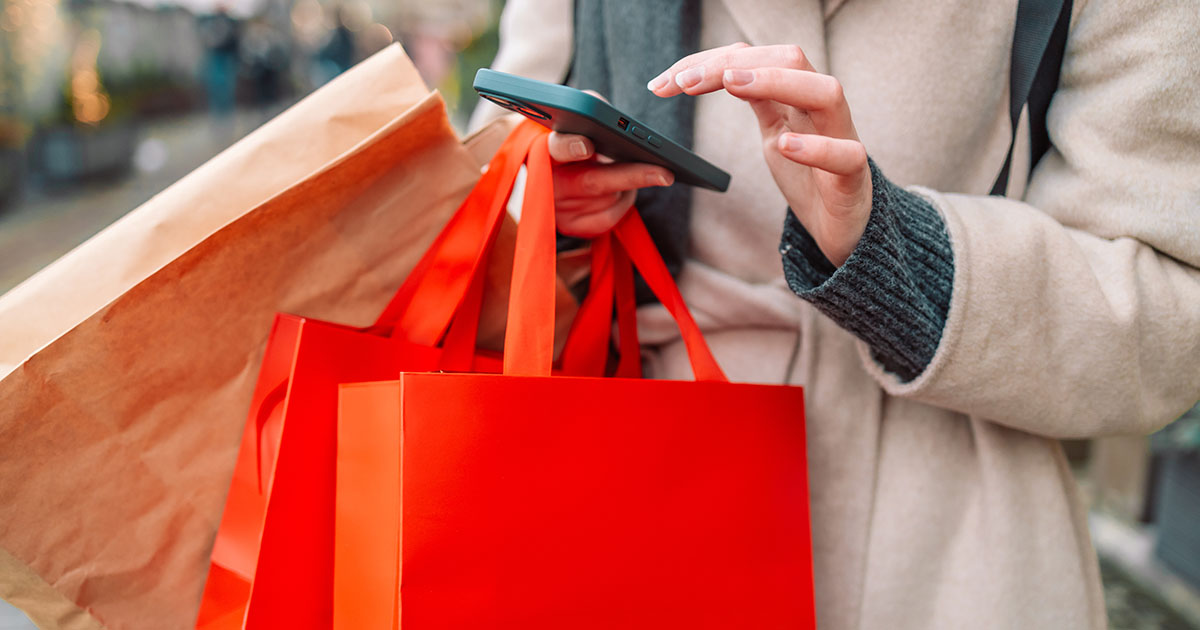As shoppers scramble to find the perfect holiday gifts for loved ones, retailers are keeping a close eye on spending and any evolving marketing trends that might continue in 2025.
While price remains a critical factor, the 2024 holiday season also reflects consumers’ growing interest in sustainability, convenience, and memorable in-person experiences, according to consultants who track consumer preferences.
Lauren Beitelspacher, a marketing professor at Babson, offers expert insights into how these trends are reshaping the retail landscape.
Convenience Reigns Supreme
“Consumers may talk about sustainability, but convenience remains king,” said Beitelspacher, who is also Babson’s Ken and Nancy Major Romanzi Senior Term Chair in Marketing. The rise of same-day delivery exemplifies this priority. Retailers are investing in diverse fulfillment strategies, including dark stores and hyper-local distribution centers, to meet the growing demand for instant gratification.
Despite consumers expressing a desire for eco-friendly practices, Beitelspacher notes a disconnect between what people say and how they shop. “If something is on sale for $5, most consumers won’t stop to think about why it’s so cheap,” she explained. Retailers are expected to justify purchases with sustainable branding, but convenience and price often win out.
The challenge, Beitelspacher adds, is balancing these priorities. “Retailers need to reduce physical distance between products and customers without sacrificing sustainable practices,” she said. “It’s a tough line to walk, but innovations like alternative delivery models or local fulfillment can help.”
Sustainability: Aspiration vs. Reality
According to a 2024 survey by Akeneo, a product information management consulting company, 50% of U.S. consumers and 59% of millennials are willing to pay a premium for sustainably produced products. Yet, Beitelspacher cautions that the emphasis on sustainability often remains aspirational.
“When sustainability aligns with convenience and price, it works,” she said. “But it’s not yet a primary driver. Consumers may gravitate toward eco-friendly options if they’re already competitively priced and easy to access.”
Ipsos Consumer Tracker supports that finding, with 41% of U.S. shoppers citing same-day delivery as very important. Sustainability remains an important differentiator, however.
“It’s about making the choice effortless,” Beitelspacher said. “Retailers could highlight the environmental benefits of their products through clear labeling or bundle sustainability with convenience, like using eco-friendly packaging for fast-shipping items.”
The Appeal of Experiential Retail
While the days of in-person shopping at malls and other big-box stores continue to dwindle due to the digital boom, in-person spending is popping up in new ways. Experiential retail is becoming a powerful draw, particularly for small businesses.
“In a fast-paced world, even a simple, personal interaction with a salesperson can leave a lasting impression,” Beitelspacher noted. “It doesn’t have to be expensive—sometimes, just engaging with a customer and showing you care is enough.”
For entrepreneurs looking to create meaningful shopping experiences, Beitelspacher recommends leveraging tools like customer relationship management (CRM) systems to personalize interactions and anticipate customer needs.
She also highlights the growing appeal of immersive holiday shopping events, such as workshops or local craft fairs. “People want memories, not just transactions,” she said. “Small businesses can stand out by offering experiences that go beyond the purchase itself.”
Opportunities for Entrepreneurs
For small businesses navigating a market dominated by retail giants, Beitelspacher suggests competing on unique strengths rather than infrastructure. “If convenience is a challenge, focus on superior products or memorable in-store experiences,” she advised.
“Understanding what consumers truly value—and adapting to meet those needs—is the key to thriving in today’s retail landscape.”
Lauren Beitelspacher, Ken and Nancy Major Romanzi Senior Term Chair in Marketing at Babson College
Additionally, the rise of sustainable gifting provides an opening for smaller brands with local or ethically produced offerings. “These businesses can tell a story that resonates with values-driven consumers,” she said. “Pairing that story with excellent customer service or an experiential element can make all the difference.”
What’s Next for Holiday Shopping?
Looking ahead, Beitelspacher sees convenience, sustainability, and experiential shopping continuing to shape consumer behavior.
“Retailers who want to stay ahead will need to integrate these trends creatively,” Beitelspacher predicted. “It’s not about choosing one over the other—it’s about finding innovative ways to combine them.”
This holiday season, as shoppers seek fast delivery and low prices, small ventures might have their work cut out for them. But, as Beitelspacher points out, the rewards are significant.
“Understanding what consumers truly value—and adapting to meet those needs—is the key to thriving in today’s retail landscape,” she said.
Posted in Insights

